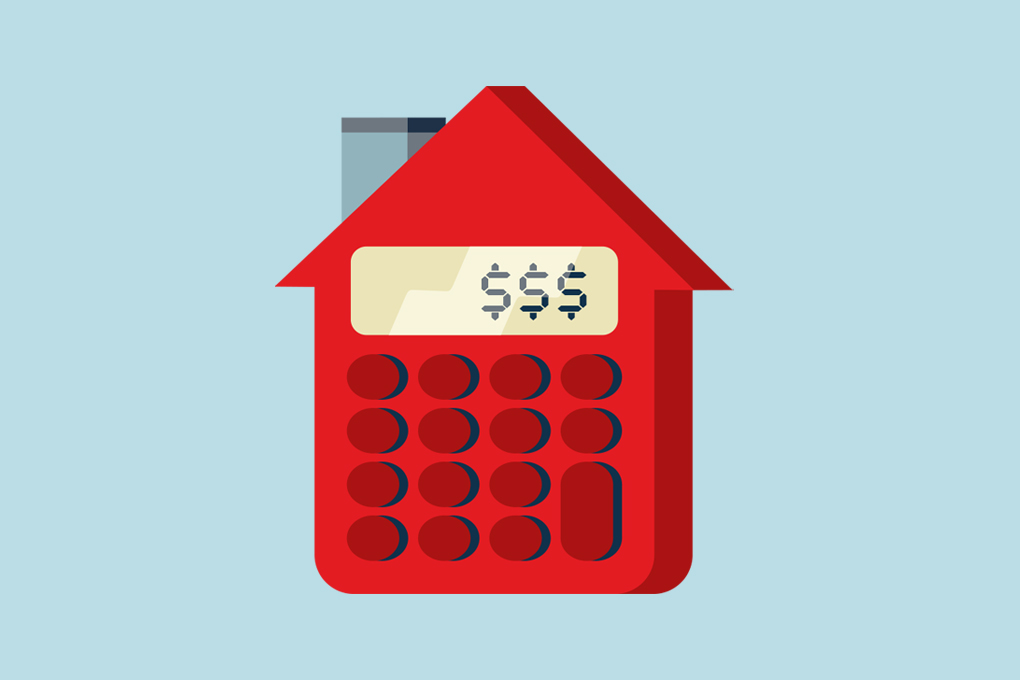Knowing your maximum borrowing capacity will allow you to determine what kind of property you can afford, on top of giving you a head start on other buyers in a competitive market where deals sometimes get done quickly.
Some terms to know
Deciding to buy your first home also means learning new terminology. Here are some mortgage terms that are useful to know.
Borrowing capacity
“Borrowing capacity” is a term used by banks to determine how much you can borrow, taking into account your income and your other financial commitments. This will help you evaluate if you’ll be able to cover your current financial responsibilities as well as the money you need to buy property.
Mortgage pre-approval
A mortgage pre-approval is a document that certifies your maximum borrowing capacity. It doesn’t guarantee that you’ll be issued this loan, but it establishes the amount you can borrow, and it protects the interest rate on this loan from any increases for 90 days.
Mortgage pre-qualification
A mortgage pre-qualification gives you a preview of your borrowing capacity. It doesn’t guarantee that the bank will lend you the money and it doesn’t protect your interest rate. It’s still a useful tool to help guide you, but we recommend you get a mortgage pre-approval to certify your borrowing capacity.
How is your borrowing capacity calculated?
Your borrowing capacity is determined based on these two debt-equity ratios:
- The gross debt service ratio (GDS) calculates the
percentage of your annual gross income (before taxes) that covers
your housing costs, meaning your mortgage payments,
municipal and school taxes, heating and electricity, plus 50% of the
condo fees, if applicable. Usually your GDS shouldn’t exceed 39%,
but a lender may require a lower ratio.
- The total debt service ratio (TDS) represents the percentage of your gross income that covers your housing costs, such as those listed above, plus all your other debts. Personal loan payments factor into this calculation, as well as your monthly credit card or line of credit payments. Usually the TDS shouldn’t exceed 44%, but a lender may require a lower ratio.
Usually, the higher your income and the lower your level of debt, the greater your borrowing capacity. Conversely, lower income and a high level of debt will reduce your borrowing capacity.
How much can I borrow?
Many elements factor into calculating how much you’re eligible to borrow, including your income, your debts, and your credit report. With an overall picture of your situation, your bank will be able to determine your borrowing capacity and make sure you can handle your current financial responsibilities in addition to a new mortgage loan.
How does a mortgage pre-approval certify my borrowing capacity?
A mortgage pre-approval will allow you to determine the price range for your new home. It will also help you predict your future monthly payments. That way, you’ll be able to set a realistic budget before you begin, also taking into consideration other costs related to buying property, such as a pre-purchase home inspection, notary fees, transfer taxes, or adjustments to your municipal and school taxes.
A mortgage pre-approval confirms your financing authorization for six months. It shows sellers that you’re serious and it reassures them, as certain steps of the buying process have already been taken care of. However, you’re under no obligation to take out the loan if you don’t find a home you like.
You can get a pre-approval certificate online with just a few documents (a pay stub and your T4 or notice of assessment). You can also apply for it by making an appointment with your advisor.
How do I increase my borrowing capacity?
To apply for mortgage pre-approval, you will have to go through a verification process with a credit bureau. The information contained in your credit report (income, loans, credit score) will be a determining factor in obtaining a mortgage pre-approval.
Your credit score changes over time. It is determined by how often you make your payments and how you use your credit card, among other things. Your score may decrease if you make late payments, or if you’re close to reaching your credit and loan limits. However, if your payments are always on time, this could help improve it.
If you’ve experienced financial issues or if you have an insufficient credit history, a co-borrower could allow you to achieve your goal of purchasing a home, whether that person is your spouse or a family member. Adding another source of income could also increase your borrowing capacity and make it easier for you to get a loan and a mortgage pre-approval.
A good borrowing capacity, certified by a mortgage pre-approval, will increase your credibility in sellers’ eyes by proving to them that you’re serious as a buyer. Our experts can also help you plan as you look for property. We’re here to answer your questions.
Stay informed
Sign up for our newsletter to get recent publications, expert advice and invitations to upcoming events.
